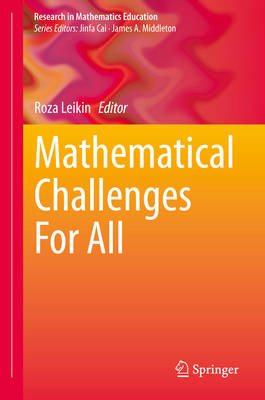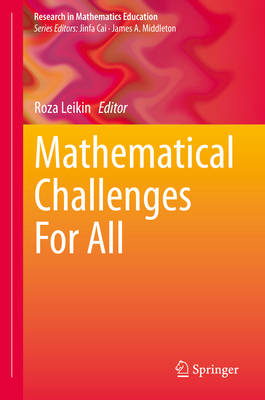
- Retrait gratuit dans votre magasin Club
- 7.000.000 titres dans notre catalogue
- Payer en toute sécurité
- Toujours un magasin près de chez vous
- Retrait gratuit dans votre magasin Club
- 7.000.0000 titres dans notre catalogue
- Payer en toute sécurité
- Toujours un magasin près de chez vous
Mathematical Challenges for All
Description
This book argues that mathematical challenge can be found at any level and at every age and constitutes an essential characteristic of any mathematics classroom aimed at developing the students' mathematical knowledge and skills. Since each mathematics classroom is heterogeneous with respect to students' mathematical potential, quality mathematical instruction results from matching the level of mathematical challenge to different students' potential. Thus, effective integration of mathematical challenge in the instructional process is strongly connected to the equity principle of mathematics education. In the three sections in this volume readers can find diverse views on mathematical challenges in curriculum and instructional design, kinds and variation of mathematically challenging tasks and collections of mathematical problems. Evidence-based analysis is interwoven with theoretical positions expressed by the authors of the chapters. Cognitive, social and affective characteristicsof challenging mathematical activities are observed and analyzed. The volume opens new avenues of research in mathematics education, and pose multiple questions about mathematical instruction rich in mathematical challenge for all. The authors invite readers to explore and enjoy mathematical challenges at different levels.
Spécifications
Parties prenantes
- Editeur:
Contenu
- Nombre de pages :
- 589
- Langue:
- Anglais
- Collection :
Caractéristiques
- EAN:
- 9783031188671
- Date de parution :
- 18-03-23
- Format:
- Livre relié
- Format numérique:
- Genaaid
- Dimensions :
- 156 mm x 234 mm
- Poids :
- 1011 g

Les avis
Nous publions uniquement les avis qui respectent les conditions requises. Consultez nos conditions pour les avis.





